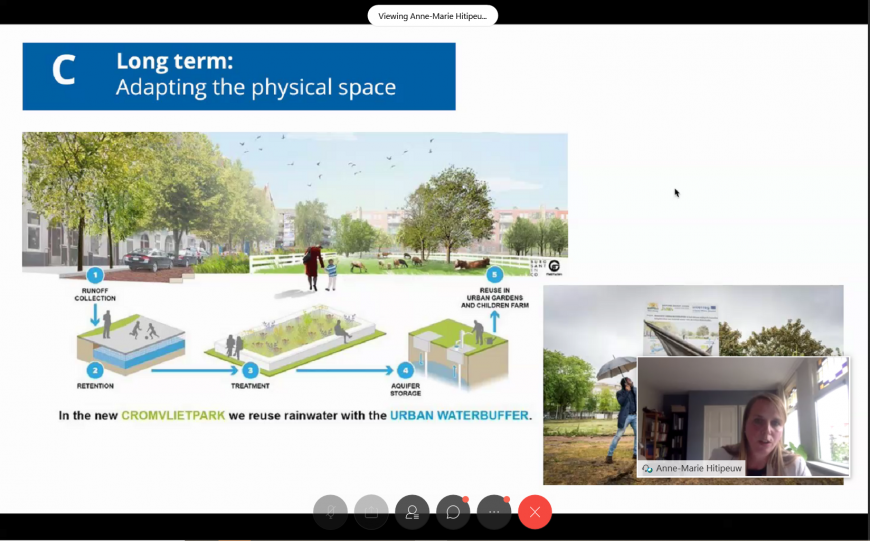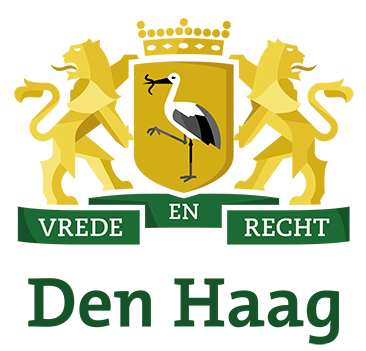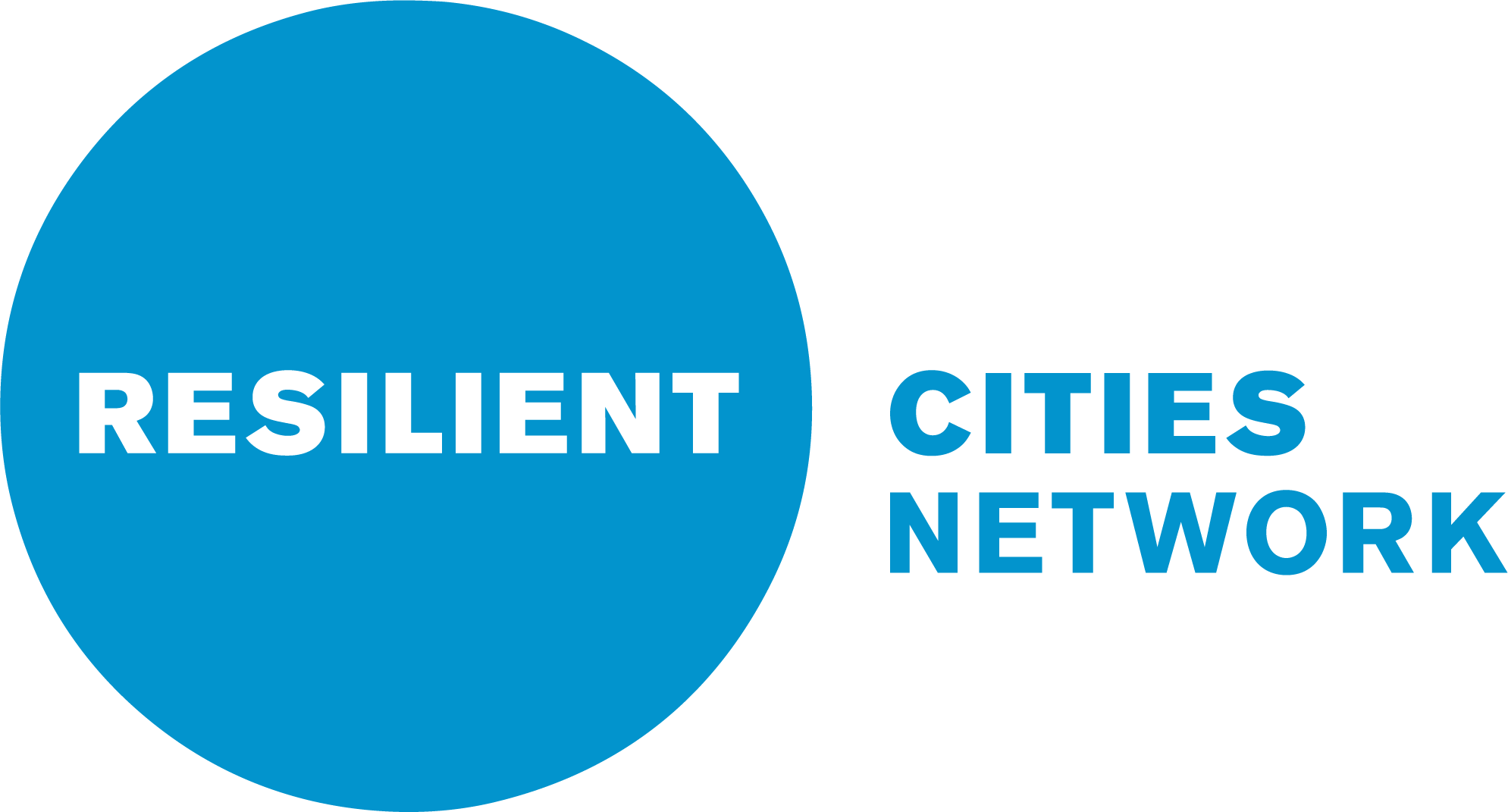
Especially in current times, where the pandemic is highly impacting daily life, it’s important to seek cooperation. Yet, the pandemic is not the only challenge cities are combating. The acute crisis Covid-19 has brought to our cities has come on top of already existing issues and sometimes even accelerates these. Still, we also see positive developments rising. Rapid digitalisation to facilitate teaching and working from home relieved some pressure off infrastructure and public space.
Combating challenges and taking opportunities together is not easy. You will have to work together with different partners from different domains at various levels in the city to build back better. Resilient The Hague sees the cities from the GRCN as a vital part of this process. Therefore, The Hague is involved in the discussion on the form and content of the network and participates in knowledge sessions. On the 27th of May, CRO Anne-Marie joined the EME regional meeting, where the future of the network and the role of the region was talked about, but also where specific themes related to Covid-19 were discussed. Cities shared their experiences and emphasized the importance of already investing in recovery and growth now. Two external speakers also shed their light on the crisis. Steve Hammer from the World Bank spoke about ways to use this crisis to build a resilient and green economy. You can read about it here and here. Duncan Shaw from Manchester University dove into the university’s research on Covid-19 which demonstrated how recovery from this crisis is different from previous crises.
On the 28th of May, The Hague also participated in the European Urban Resilience Forum, organised by GRCN and ICLEI, which took place online for the first time. Representatives of cities, companies and academic science discussed urban resilience, with a focus on Covid-19. During one of the sessions, The Hague, together with resilient cities Genua and Vejle, shared their vision on resilient recovery. In Genua they see a growing popularity to move into the rural and thus sparsely populated areas around the city. Vejle is using recovery programmes to stimulate a green and sustainable city. They also use culture to combat Covid-19 and loneliness, which is a major challenge for the city, simultaneously. The Hague’s approach is all about including citizens, companies and knowledge institutions in their efforts to build back better. All three cities agree on using one action to generate multiple effects is the best way to deal with the impact of Covid-19.
Last week, The Hague was active again on the international stage. The weekly webinar Cities on the Frontline by the GRCN and the World Bank was about the compound vulnerabilities caused by Covid-19 and extreme heat. We know that extreme heat is hitting vulnerable and marginalised groups hard, and Covid-19 adds another layer of risk to these effects. Anne-Marie Hitipeuw spoke about The Hague’s approach on heat and the urban heat island effect in the city. On the short term, The Hague will make use of the channels created for Covid-19 to reach vulnerable people during a heatwave. On the long term, The Hague is working on building a heat proof city by making adaptations tot he build environment such as the Urban Water Buffer
Another vital part of The Hague’s approach is drawing upon other cities’ examples, which shows the importance of collaboration on this topic. Also Johanna Lovecchio and Grga Basic from Columbia University’s Center for Resilient Cities and Landscapes spoke during the webinar. They discuss practical methods to map compound vulnerabilities of Covid-19 and extreme heat and share their lessons learned from the work they have done in cities. You can view the webinar here.

